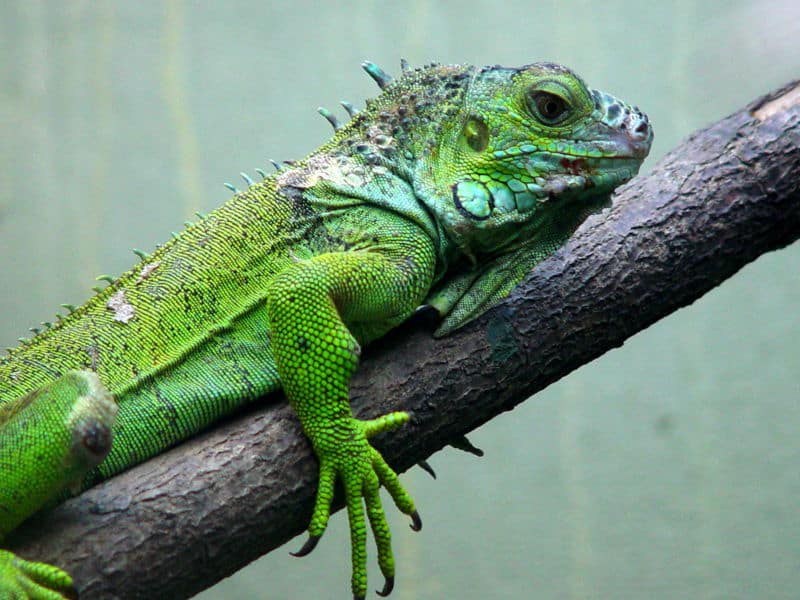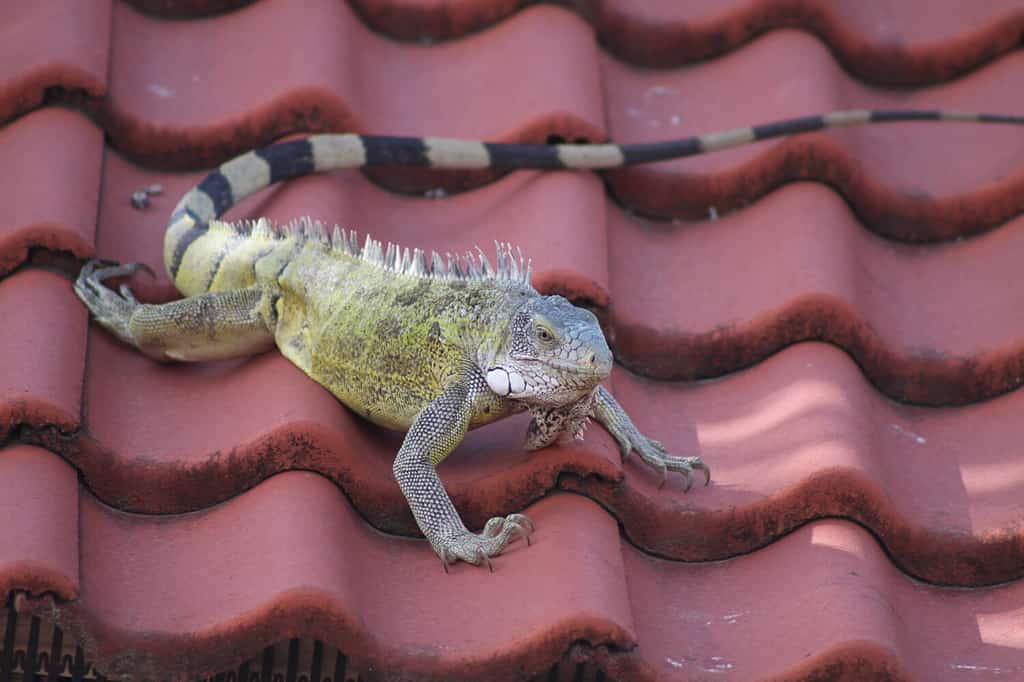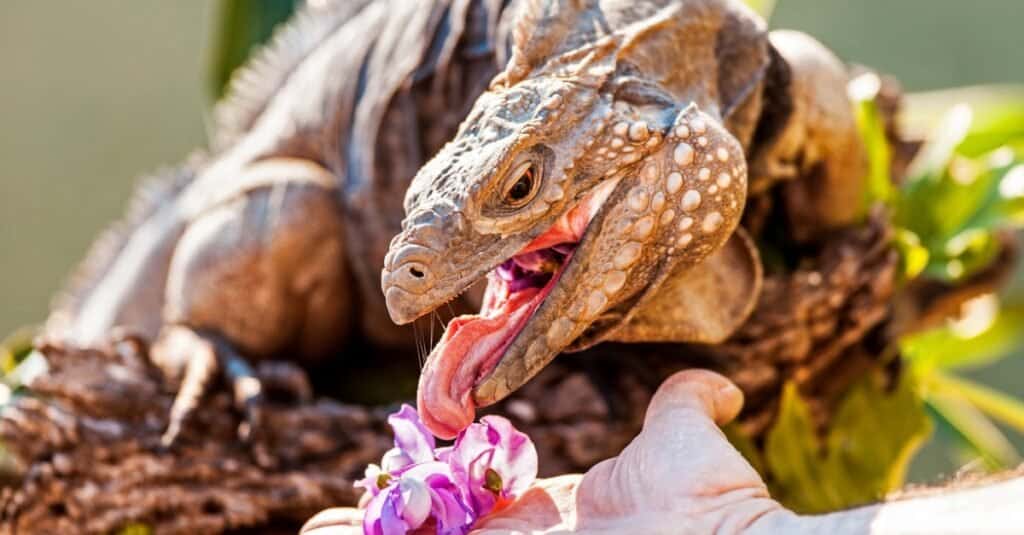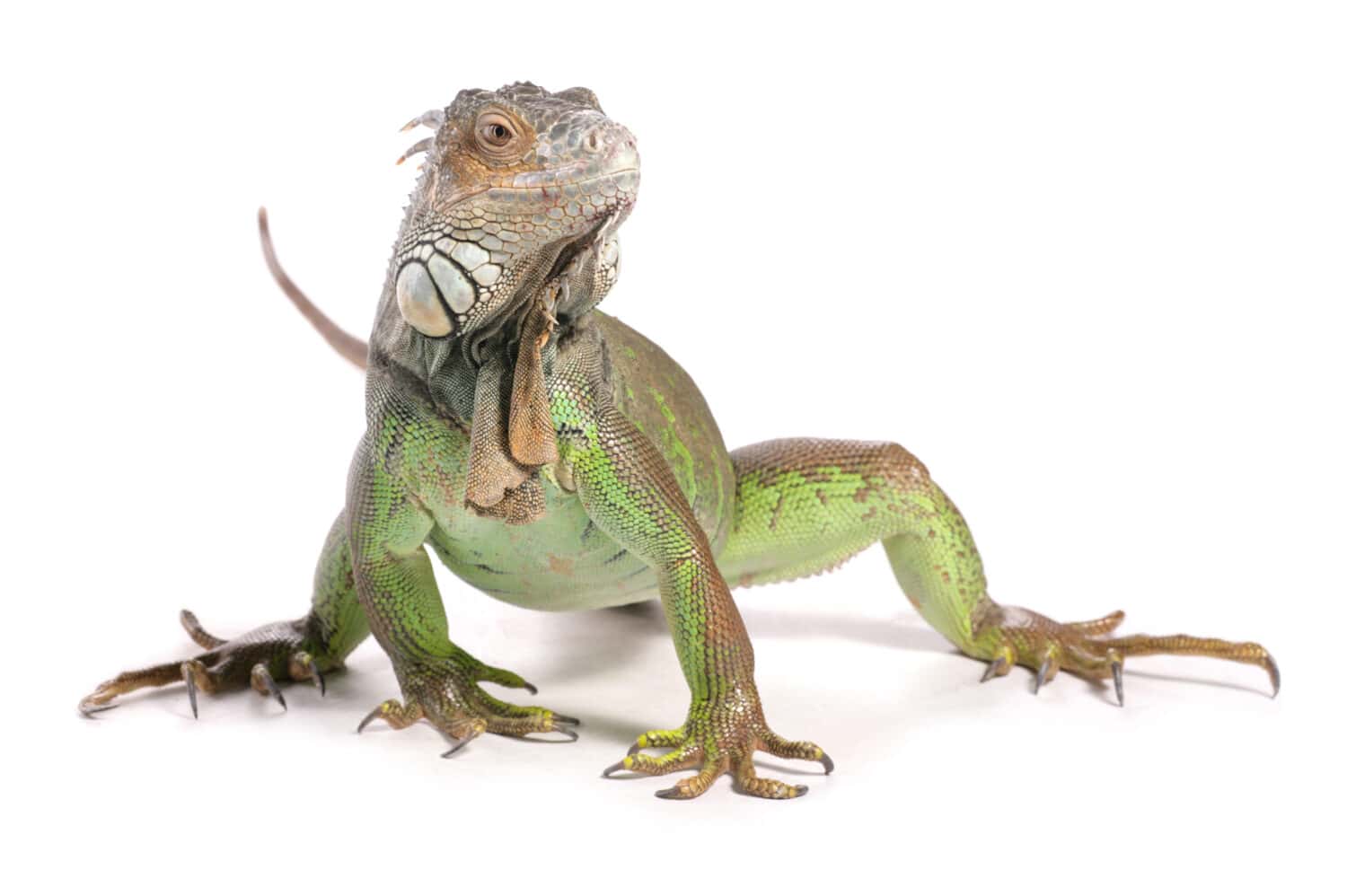Pet or pest? With iguanas, it all depends on your perspective. Iguanas are native to South and Central America but have become both popular pets and invasive species in tropical states like Hawaii and Florida. Many homeowners are interested in repelling these critters, and learning what smells iguanas hate can aid in that goal.

Iguanas are super smart. People can train them to do tricks and even use the toilet. But that also means they can find clever ways to get onto your property. They may eat your favorite flowers and vegetables, climb your fruit trees, and tunnel all over your yard. Fortunately, there are quite a few affordable solutions. In this article, we reveal eight smells iguanas hate, as well as some other tips for making your yard inhospitable to them. Additionally, we’ll cover ways of dispatching them humanely, if your deterrence efforts fail.
Iguanas: Pet or Pest?

Owning an iguana feels like owning your very own dinosaur!
©iStock.com/adogslifephoto
Growing up to 6.5 feet long and weighing up to 11 pounds, iguanas are the largest lizard you can reasonably own as a pet. Just watching them stalk slowly around like living dinosaurs can be endlessly entertaining. They can also be surprisingly affectionate to their owners, toilet train, and learn to do some tricks. And don’t get us started on shedding, during which they leave behind a satisfying ghostly shed skin showing their every detail, including their spikes and eyes.
On the flip side, a wild iguana wandering into your suburban Florida subdivision will make an absolute chopped salad out of your carefully tended trees, shrubs, flowers, and vegetable garden. Iguanas dig burrows and tunnels up to 80 feet long – large enough to collapse sections of sidewalks or crack a home’s foundation. They can invade pools, leave droppings around your patio, and short out underground power lines by digging through drainage infrastructure.
As herbivores, they are not aggressive toward people or animals unless they feel threatened. But when they do bite, they can inflict nasty wounds and transmit salmonella. And they can also whip you with their tail. As if all that weren’t bad enough, every female can lay 20-70 eggs a year, meaning they multiply like rabbits. So, it’s understandable that you’d very much like to keep these reptiles out of your yard, however cool they may look.
Smells Iguanas Hate

Iguanas hate the smell of citrus. Planting citrus trees or using citrus-based odors can repel them.
©leonori/iStock via Getty Images
One way to discourage iguanas from visiting your yard is to make it smell like things they hate. Animal removal experts suggest trying these scents:
- Citrus
- Garlic
- Habanero peppers
- Oregano
- Lemongrass
- Citronella
- Cedar
- Neem oil
How do you use these scents? You can grow the plants that produce them, scatter peelings of them around your fences and landscaping, or make a homemade spray to use around your plants. For instance, some homeowners make their own iguana repellant with ingredients like garlic, lime juice, habanero pepper, and dish soap. You might try different combinations of the eight scents listed above to find one you like. Remember to reapply after rain, which of course could be quite frequent in Florida.
Landscaping to Deter Iguanas
Fences and Scare Tactics

Iguanas are good climbers. You should trim tree branches that allow them to cross from yard to yard.
©Nevit Dilmen, CC BY-SA 3.0, via Wikimedia Commons – Original / License
To keep iguanas from crawling or burrowing under fences, you can use chicken wire attached to the bottom of the fence and buried several inches underground. You might also want to enclose treasured blooming plants in chicken wire cages. Some people have success hanging old CDs to create confusing flashing lights or using windchimes to scare them with noise. These have to be moved around from time to time as if they stay unchanged iguanas will no longer be scared of them.
Trees and Shrubbery
Iguanas can climb trees, go from branch to branch into other yards, and drop down over fences and onto rooftops. You and your neighbors can agree to cut back tree branches that give them access from one yard to another and any that overhang your roof. You can put smooth sheet metal sleeves around the bases of tree trunks 18 inches from the trunk to stop them from climbing. Thin out and prune back dense shrubbery to deny them hiding places. If you’re willing to replace trees on the property with citrus trees, that will make your yard unappealing to them.
Iguana-Repelling Plants

Crotons are one of the colorful plants you can use in landscaping that iguanas won’t eat.
©Khairil Azhar Junos/Shutterstock.com
Remember, they are in search of certain kinds of flowers, tender leaves, fruits, and vegetables. They love flowering plants like roses, orchids, bougainvillea, hibiscus, and impatiens. Over time, you might want to replace these with non-blooming greenery or flowers from this list that iguanas reportedly do not eat:
- Mexican Petunia (Ruellia brittaniana)
- Chenille
- Cordyline (Cordyline australis)
- Ixora (Ixora taiwanensis)
- Oleander
- Society Garlic
- Croton (Codiaeum variegatum)
- Purple Queen (Tradescantia pallida)
- Lilyturf (Liriope muscari)
- Silver Buttonwood (Conocarpus Erectus sericeus)
As for vegetables, experts encourage planting those that are toxic to reptiles and therefore avoided by iguanas. You can plant these as a border around other crops or flowers to provide some protection for them: carrots, Swiss shard, brussels sprouts, turnips, beets, and spinach will all repel iguanas.
Physically Removing Iguanas

Iguanas are excellent climbers and swimmers, and they move fast.
©Cora Unk Photo/Shutterstock.com
So, what if all your deterrence measures have failed and you continue to have iguanas on your property you want removed ASAP? The quickest and cheapest thing you can do is spray them with a water hose. If you’ve discovered entrances to iguana burrows or tunnels on your property, fill them with rocks during the day when the iguana is not home so as not to trap it cruelly. Anti-cruelty laws in Florida protect iguanas and other reptiles from measures like poisoning or other inhumane deaths. It is legal to kill wild iguanas in Florida, but it must be done humanely. It is not recommended to try to capture iguanas alive, as they are an invasive species that cannot be legally re-released into the wild after capture. Your best bet is to call a wild animal removal company with experience capturing or humanely exterminating iguanas.
Disposing of Unwanted Pet Iguanas

Pet iguanas learn to associate people with food. A home-raised pet released into the wild may have trouble feeding itself and recognizing danger.
©iStock.com/adogslifephoto
Finally, if you or someone you know has a pet iguana they no longer want, please make sure the creature is not released into the wild. This can be cruel in more ways than one. A pet can be quite affectionate to people and may continue going back to them for food. It won’t be as street-smart as feral iguanas about foraging and protecting itself from danger. And of course, it adds to the invasive species problem. So instead, search online for a good animal rescue or advertise the pet online to a good home.
Thank you for reading! Have some feedback for us? Contact the AZ Animals editorial team.








